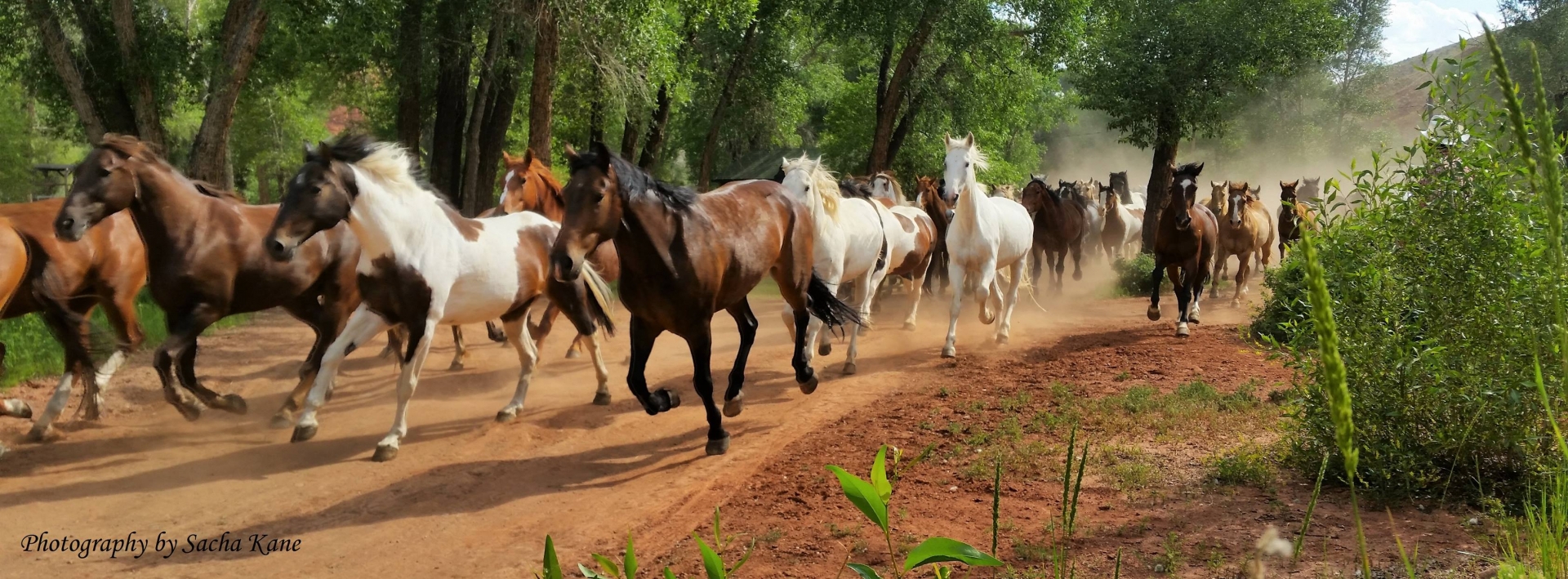
InFocus
Bond or Bondage?
Vic Grayling -- Thu, 18-Aug-2016
Fundamentally domesticated horses are genetically the very same as wild horses. The animals we ride, feed and home are at heart the same wild animals that hunt and gather for survival. This got me thinking about animals in captivity and under what means we should have the rights to toy with the very nature of wild animals. Whatever the discipline, horses in captivity are programmed to behave. I have witnessed many a times riders punishing their horses for misbehaving, hauling on their bridles and digging spurs into their sides, all without fear of consequences. But under what circumstances is this right?
I recently listened to gold medalist Charlotte Dujardin talk about her partnership with the stunning Valegro and about the moments before her last Olympic test.
“I never get nervous but the last ten minutes my legs went like jelly. As I went into the arena and I trotted around the outside it was like he held my hand and I could feel it”, says Charlotte.
She explains that this happens through years and years of training. It’s the bond, relationship and partnership that flourish into results. However, is it truly a bond? Or rather the ultimate submission? When you are able to think a movement and the horse executes it, is this due to the powerful bond between horse and rider or the fact that the horse is anticipating the next move due to the intense level of training preceding the seven minutes in the arena? Valegro is captivatingly tuned into Charlotte’s every movement and breath, awaiting his next command to perform his next technical movement that in reality he shouldn’t know how to do. And it’s not just horses that are captivatingly tuned. It’s all animals in captivity, including Orcas.
Despite my recent attempts to remove the graphic images the movie Blackfish has embedded in my mind, of the Orca whales in captivity at SeaWorlds’ around the globe, the harsh reality remains with me. These wild animals are held against their will, in captivity, and like horses are forced to perform tricks with consequences for poor execution far beyond what most would consider humane. Park creators, trainers etc believe indubitably that what they are doing is for the greater good of these animals. Propaganda preached by organisations is swallowed by the media. SeaWorld argues that animals in captivity gives grounds to expand scientific research. Animal behaviour and emotions are analysed but ultimately does this benefit provides grounds to effectively capitalise at the expense of another living animal?
Now you are probably wondering about the way in which this relates at all to anything equestrian. We talk about animals in captivity. We know that elephants’ living in zoos is inhumane, that training and holding hostage the likes of orcas and dolphins for entertainment purposes is wrong, but people continue to do it. And it remains legal in many areas of the world. However, if we don’t take a step back and analyse the grounds under which we feel these things are wrong, we run the naïve risk of thinking that what we do with horses is any better. Now there are two sides to every argument. You could argue that ultimately your horse has a better life in your ‘captivity’ than it would if it was in the wild. That you can provide the things it needs in its life to fundamentally live its years out in the most horse like fashion. But, how do we know that what we are doing with these complex animals is right? Their brains are far more intricate than we could ever imagine, they think differently and act differently under stress and emotion. At the end of the day they are, like orcas and any other wild animal, unpredictable and unable to speak. The difference is that we teach them the way in which we want them to operate and for many, they know no other way. But if they know no other way, then how come you see horses acting out on countless occasions? Is it out of sheer frustration that they just don’t understand, or is it simply because living their lives in captivity is, at the core, unsatisfactory?
Horses are known to man as a domestic species. For over 6000 years, horses have been domesticated meaning they have had a sufficient amount of time to adapt to the man made environment we so caringly offer. Allowing horses in ‘captivity’ to live out their lives in a natural horse environment, one that is unbeknown to domesticated horses, may expose them to negative experiences that otherwise can be completely avoided. Living out a life in solace, away from hunger, disease and predators are just the few examples of how captivity for animals can in fact enhance the welfare. These domesticated horses exist purely for financial gain and entertainment, so without captivity we would have no use for them and thus, this becomes an argument for existence.
When horses are ill, we as the responsible owner, provide veterinary treatment. We provide food and drink so horses don’t have to hunt in order to survive. We provide blankets for the cold weather and have the technology to clip in the summer months. We provide the means in which these animals can be protected, even if it is at the expense of their natural habitat.
Is this interference with nature justifiable? On the one side we are protecting these animals against the things they would otherwise fear but on the other we are ultimately holding them captive purely for financial and entertainment purposes.

